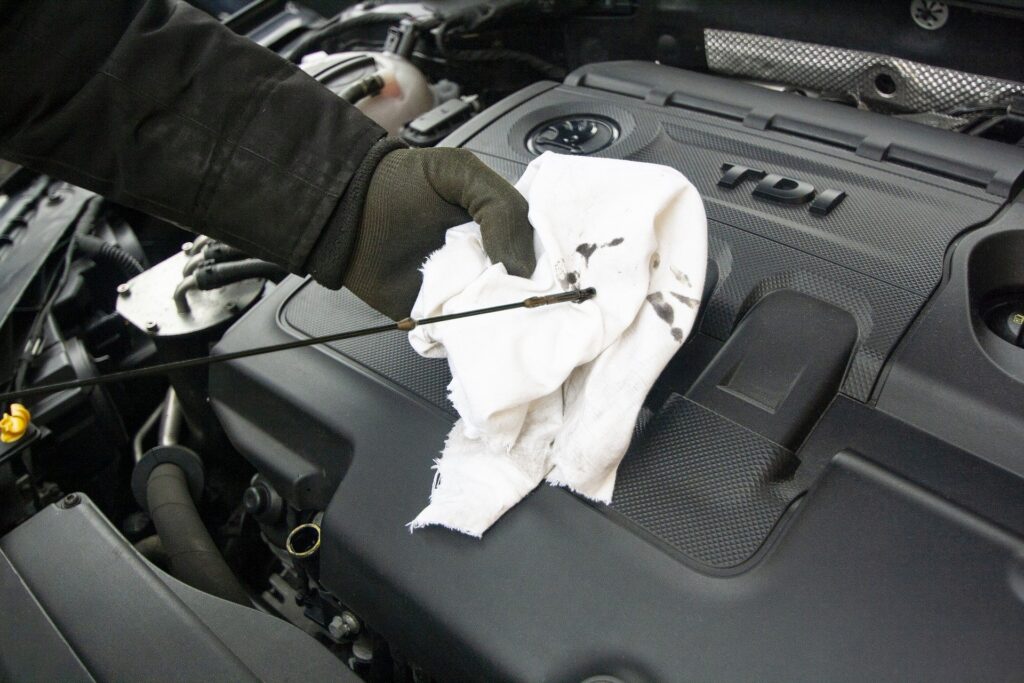With the responsibility of car ownership comes a list of obligations to keep your car running properly. It requires you to stay on top of annual maintenance checks, headlight replacements, and interior and exterior cleaning. With that being said, we all know life gets in the way. You become overwhelmed by work, family priorities, household chores, or that big to-do list. As you juggle it all, you often lose track of the minor responsibilities like motor oil management.
You may perceive an oil change as unimportant, but putting off your next replacement is more detrimental than you think. Waiting until next week or next month may fit into your busy schedule, but you are potentially damaging your vehicle through the process. Your vehicle thrives off clean motor oil and relies on this necessity to do its job properly – therefore, making it essential to get your oil changed when necessary.
The following will detail everything you need to know about skipping your next oil change – including insight on how often you should change your vehicles’ oil.
Purpose of an oil change
Oil is vital to the livelihood of your car. It lubricates your vehicles’ engine to ensure quality performance and longevity. Over time, the oil in your car becomes contaminated with dirt and debris, which causes the oil to lose efficacy. An oil change involves removing the old, dirty oil and replacing it with one of the four, motor oil varieties – synthetic oil, synthetic blends, conventional oil, or high mileage oil.
Whether you drive a used vehicle or the latest luxury model, your oil will eventually need to be replaced. The oil keeps your car running smoothly so it is important to choose the best oil variety for your vehicle. It is suggested to ask your local mechanic which oil best suits your type of car. For example, if your car has over 75,000 miles or shows signs of an aging engine, you will likely require high mileage oil.
Why are oil changes important?
An oil change is imperative to keeping your engine in good condition. As a car owner, you should take pride in maintaining every component of your vehicle – even the parts you don’t see. The following details are exemplary reasons why motor oil is important:
- Proper oil lubrication
- Cools the engine
- Removes dirt and sludge
- Improves gas mileage
- Longevity
What harm does skipping your oil change cause?
It may seem like a simple task to put off, but avoiding an oil change can lead to a list of unfavorable consequences. By neglecting this basic obligation you could potentially cause even greater inconvenience to your already busy lifestyle. The following details are common outcomes of an overdue oil change:
- Poor performance
- Deficient fuel efficiency
- Overheating
- Engine failure
- Voided warranty
As stated, these outcomes could lead to an unhappy vehicle and owner. Beyond the operational functions, an oil change will also help retain your cars’ value. A healthy engine with working components will dictate the longevity of your vehicle and show that your vehicle is well cared for. Therefore, skipping your next oil change is a lose/lose situation.
How often should you have your oil changed?
It is recommended to get your motor oil changed every six months, but the duration of time and the amount of mileage can differ depending on the vehicle. Check your owner’s manual to determine the right interval between oil changes. Your local mechanic will help you keep track, but most vehicles will notify you when the oil life has diminished.
While many car owners are now focused on cleaning and disinfecting their vehicle, they must not forget the importance of timely maintenance checks. Even among the pandemic, many established auto shops are doing their part to service customers in these unprecedented times. Has your scheduled oil change fallen during COVID-19? Don’t hesitate to keep your appointment – thankfully, curbside service is available.
When it’s time for an oil change, conveniently drop your vehicle off curbside and our team will keep your engine running steady. #FirestoneAutoCare pic.twitter.com/F5XlNpK66f
— Firestone Complete Auto Care (@FirestoneAuto) May 4, 2020
The bottom line
Don’t wait. Skipping your next motor oil change will only lead to unpleasant problems. You do not want the hassle of an overheated engine or voided warranty due to improper upkeep. As a car owner, you want to get the most out of your vehicle, so it is crucial to stay on top of your responsibilities – regardless of how busy life can be. Whether it’s fixing a flickering headlight or upgrading to synthetic oil, these obligations remain crucial.
